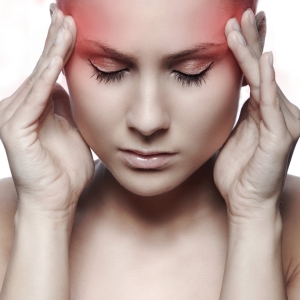Arterial hypertension is a common deviation of the cardiovascular system. Its main manifestation is a long-term increase in blood pressure (hereinafter blood pressure), exceeding the mark of 140/90 mm Hg. st. This disease is a key factor in the development of failures in the work of the heart, the brain, the auditorium, etc. The prolonged rise of blood pressure is called hypertensive disease or hypertension.
Arterial hypertension: what is it?
The mechanism of development of hypertension launches dysfunction of the control centers. The cause of such pathology is often chronic organs of organs or entire systems.
There are two main indicators - systolic pressure (top value) and diastolic (lower value). At the time of reducing the heart muscle into the clearance of blood vessels, blood falls like a certain pressure on their walls.
After that, the muscle comes into the state of rest, and the pressure on the vascular walls falls. During the measurement, these two indicators are displayed as fractions: numerator - systolic value, denominator - diastolic indicator. In hypertension, these indicators significantly exceed the norm.

Arterial hypertension - the mechanism of development of the disease
Reusable and sustained increase in blood pressure can be provoked by primary and secondary factors. Primary hypertension or essential evolves as a result of a failure of the neurohumoral regulation of the tone of the vessels. This type of disease occurs in 85%. As a rule, it develops with age under the influence of genetic factors and is a family disease.
Secondary hypertension is symptomatic, that is, is a symptom of another disease, for example, pituitary dysfunction, adrenal pathology, kidney disease.
To accurately determine the cause of the development of secondary hypertension difficult, but therapeutic practice is most likely the reasons for its appearance:
- Hereditary factor burdened by the mutation of genes.
- Hydodamic lifestyle (reduced activity).
- Condition of chronic stress.
- The age of women after 55 years, and men after 60 years.
- Sustainable increase in cholesterol.
- Diabetes of any type in history.
- Smoking, alcoholism.
- Harmful working conditions.
- Salt abuse.
Causes can also serve chronic diseases:
- Cardiovascular deviations (atherosclerosis, aortic valve dysfunction).
- Hormonal disorders (climax, pituitary neoplasm, hyperthyroidism).
- Renal factor (jade, the presence of gums, tumors, injuries).
- Neurogenic causes (psychological diseases, violation of the work of the CNS).
Important! Hypertension proceeds in three stages: the first - does not cause damage to other organs, the second leads to the damage to the retina, the vessels, and the third - causes angina, hemorrhage in the brain, renal failure.

Arterial hypertension - signs of pathology
On time, the detected disease allows you to carry out appropriate treatment and prevent the progression of hypertension.
The main symptoms of the disease:
- frequent dizziness;
- reinforced sweating;
- nausea, sometimes with vomit;
- headache in the occipital zone;
- redness of the skin of the face, neck;
- dyspnea;
- cardiac pains that are not eliminated by the acceptance of nitroglycerin.

Hypertension: What to do if suspected the development of the disease?
First of all, you need to contact a family doctor for examination. Diagnostics, as a rule, includes such procedures:
- Measurement of pressure.
- Collect complaints and history of the patient.
- Holding an electrocardiogram.
- Hormonal examination of the thyroid panel and the ultrasound of the thyroid gland.
- Biochemical blood test.
- Dopplerometry.
- Inspection of the eye day.
According to the results of the study, the patient is appointed a suitable treatment scheme.

Arterial hypertension is a serious disease. But subject to the timely appeal to the doctor and adequate treatment, the forecast remains favorable.































